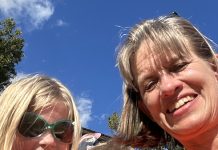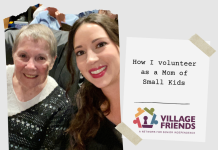
My sweet Jake was diagnosed with Autism in 2002.
In 2002, Autism affected 1 in 250 children.
Autism, or Autism Spectrum Disorder, is characterized by a wide range of symptoms. Some of the main traits of autism include:
• Challenges with social skills
• Repetitive behaviors
• Difficulties with speech and nonverbal communication
• Other unique strengths and differences
The CDC estimates that roughly 1 in 40 children in the U.S. have a diagnosis of Autism Spectrum Disorder.
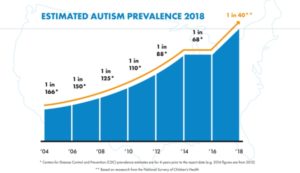
Autism rates in the United States have increased steadily over the past 10 years. A 6 fold increase since 2002.
What many people don’t know is that everyone with Autism is different. No two Autistic people behave the same way. There are varying degrees of severity when it comes to Autism, and some people are considered high-functioning. The diagnosis varies from person to person, and the reason that it’s called Autism Spectrum Disorder is that some individuals have more severe symptoms than others.
Seventeen years ago, internet was not what it is today. Logging on to research, you literally pulled up 100 or so sites, and they gave the grimmest outlook, buy your kid a helmet and begin looking for residential placement. I purchased every book I could get my hands on. Most of those books were written by parents that shared their stories. I needed information. One of my very first phone calls was to the Autism Research Institute, and I spoke on the phone with the one and only, Bernard Rimland {Founder of Autism Research Institute}.
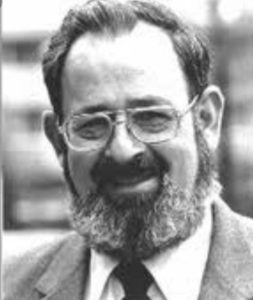
He was a breath of fresh air, and not someone everyone got to talk to. I spoke with him a few more times over the few years before his passing. I took his advice as gold, and to this day, his publishing and research on Autism is still leading.
Pretty quickly, after much research and phone calls, we enrolled Jake in Speech Therapy through AIDB, and in a program through our local university called Project Aim.
We were very blessed to meet Dr. Caroline Gomez, {she was not a Dr. then}, and she was instrumental in our success with providing Jake the services he needed. We also began an in-home program of ABA (Applied Behavioral Analysis), this program ran out of our home five days a week, from 9 a.m.-4 p.m. We used students from the Psychology Department as our therapists. ABA was the tool that helped Jake learn basic skills, it was the stepping stone that we still use today to help him succeed. ABA has caught some flack over the years, and some families find it was not useful for their children. Recently, Alabama has began to pass legislation that encourages insurance providers to pay for ABA. It is still the most widely used programming for teaching children with Autism Spectrum Disorder. Jake had in-home ABA for three years, and Preschool around the same time. Our local school system had a regular Special Education classroom for children with special needs, but we knew Jake needed more. We advocated for Autism services and the following school year began with a Autism classroom, and a brand new teacher fresh out of the Autism program at Auburn University. Jake flourished.
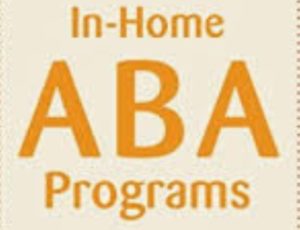
We also began to use a program for Jake called PECS, the Picture Exchange System. He learned it pretty well, but was not ever fond of how the system worked. Jake has always wanted to be very independent, and the concept of using laminated cards, with velcro and strips to ask for what he wanted, he chose to just go get it himself.
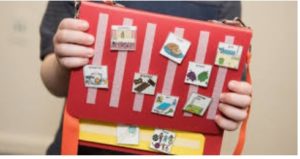
His next communication system was super simple, the Seven Level Communicator, but it only allowed for 7 levels of sets of 2, 4, 6 words on different settings we had to preset. He used that device several years.
Jake is considered non-verbal, but he is far from that. He just communicates in a different way. Today, Jake uses Augmented Technology to communicate, he actually has a slew of different devices, and apps. We are still working super hard to see which he prefers. Jake is highly intelligent, and his receptive language far outweighs his expressive. But, let me explain. In the “testing” world, because he struggles with expressive language, people have assumptions and tests are not legitimate in measuring his actual abilities. Just because someone can not speak, doesn’t mean they have nothing to say.
Jake knows what he wants, but a device can’t always tell you. Communication is by far, Jake’s biggest hurdle he must face every single day.
Jake is a silly, strong , smart, handsome young man who enjoys playing tennis, riding the train, going for walks, car rides, eating tacos,reading and writing, and cleaning.
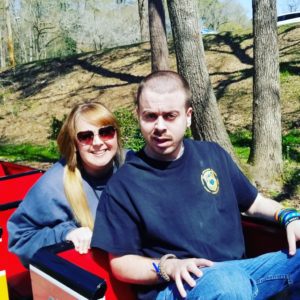
I wanted to share a small glimpse into Jake’s story and where he is today, but 19 years of information just won’t fit in a blog post. So, I focused on the beginning and what about Autism affects him the most.
April is Autism Awareness Month and April 2 is World Autism Awareness Day.
Since 2011, I’ve been a Network Leader for the Autism Society of Alabama, which consists of planning events, socials, training, ect. for our local families. One of my main goals is Autism Acceptance. Our families need to feel accepted. People living with disabilities are one of the most under-served minority groups. Often pushed under the rug, services falling to the wayside. This is not acceptable to me. I am only one person, but I can and do, work as hard as I can to make sure my families feel “seen” and accepted.
One way I accomplish this goal is by hosting our Annual Going Blue for Autism event. This year’s event will be held at the Lee County Courthouse Fountain on Tuesday April 2 from 5:15-7:15. There will be lots of activities for the whole community to enjoy. Live music, petting zoo, arts and crafts, cake walk, chalk and bubble zone, and much more. We encourage the community to come out wearing Blue and join us for our group photo at 5:30, the mayor will present the city Proclamation at 5:45.
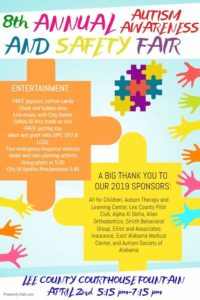
Now, you may ask yourself how can you help with raising Autism Awareness.
Here are a list of things, Anyone can do:
1. Learn About Autism
To spread Autism Awareness, start by learning about the topic. Read about Autism from reliable professional sources and people with first-hand experience on the condition.
2. Get Involved
There are many people out there who are doing good work spreading the word about Autism, but it still isn’t enough. If you’re passionate about spreading Autism Awareness, it’s very important that you not only learn for yourself and talk about the problem – you should get involved too! There are big and small ways that you can get involved.
3. Attend Events
Learn about Autism and make it your mission to spread the word. Get involved. One great way to get more involved in the Autism community is by going to events.
No matter how much you read and study, you’re never entirely going to understand Autism unless you interact with people who live it. That’s when you see how unique and strong people with autism are. Just know that getting out there and doing something about the problem is the best way to start making the world a better place for people with Autism and their families.
Celebrate Autism awareness by wearing Blue, on Tuesday April 2, put a blue light bulb up and “Light it up Blue”.
How will you be raising Autism awareness and acceptance this year?
I shared my story.




